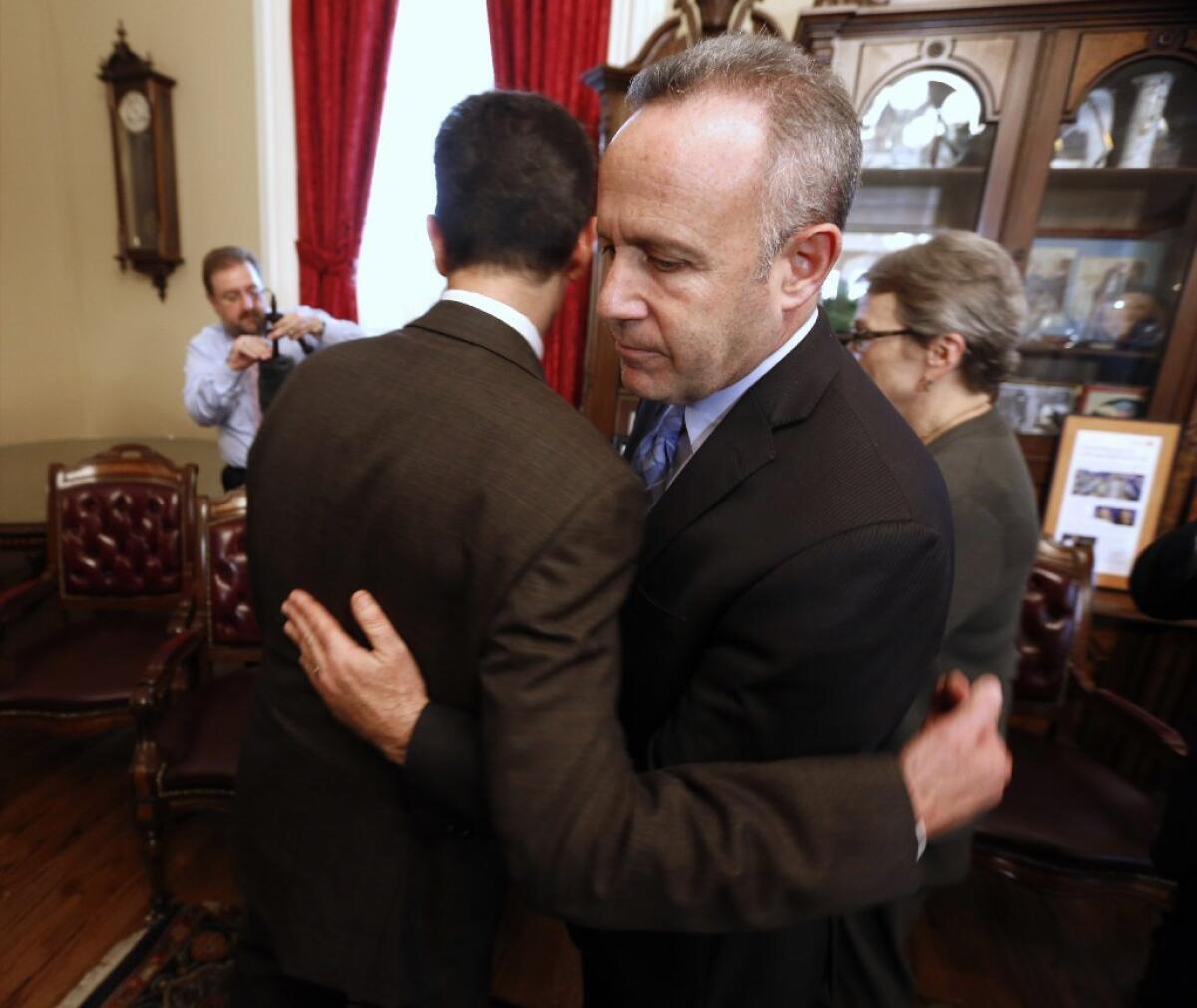Op-Ed: Is the Legislature rotten to its core?

Now that the California Senate has voted to suspend three of its members, all accused or convicted of criminal wrongdoing, legislators hope the issue will quickly vanish.
And that’s precisely the problem with this action.
Giving three senators a “time out” — with pay — allows the rest of the members a chance to express outrage, genuine or feigned. However, it doesn’t begin to address a larger question: Are these merely three bad apples, or is the larger orchard that is California’s Legislature rotten to its core?
If Sacramento officialdom — the Legislature and Gov. Jerry Brown — were serious about this wave of scandals, the town would very quickly appoint an independent commission to investigate how politics are conducted in California’s capital.
Such a commission could be composed of, say, nine appointees — three each from the governor and the respective Democratic and Republican leaderships. This only works if there’s bipartisan and nonpartisan input. None of the appointees can have a financial interest in state government (no lobbying, consulting or counseling).
Then appoint someone to head the panel who is seen to be above the fray. There are plenty of good candidates. I’d nominate Tom Campbell, dean of Chapman University’s School of Law. Why Campbell? He’s a former state lawmaker and congressman, and a former candidate for statewide office. As such, he understands the intersection of politics, money and ethical choices. But more important, he’s one of the most incorruptible individuals to have held public office in California in the post-Watergate era. This is a mission that calls for Diogenes.
As for what the commission should examine, here are three suggested areas:
The current cases. Begin with the assorted sins both proved and alleged — fraud, bribery, criminal conspiracy — of Sens. Ronald S. Calderon, Roderick D. Wright and Leland Yee. Is this something new to Sacramento, or something to be expected when 120 individuals thirst for power and have an even greater thirst for campaign dollars? In Wright’s case, is he an anomaly, or part of a larger trend of lawmakers playing fast and loose with their “official” voting addresses? As for Calderon and Yee, how did their cases unfold and involve the FBI?
Campaign finance. This year marks the 40th anniversary of California’s Political Reform Act, which requires detailed disclosure of money in elected offices, including campaign contributions and spending and candidates’ personal finances. Is that law living up to its original intent, or has it become too tempting and too easy for lawmakers to game the system, legally and criminally?
The commission needs to consider whether these latest scandals strengthen the case for public funding of state campaigns. Or should California, instead, blow the lid off donor limits, offering candidates unlimited contributions in exchange for immediate disclosure?
Sacramento self-policing. The Assembly and state Senate have legislative ethics committees. What they actually do is anyone’s guess. For example, Senate President Pro Tem Darrell Steinberg reportedly was poised to ask his chamber’s ethics committee to investigate Calderon, but didn’t. When was the last time a member had to appear before a committee and answer for dubious voting or shady contributions? As Friday’s suspension vote showed, the Legislature has no qualms about policing itself, but only when pushed into a corner by FBI raids and a media spotlight.
An independent commission should investigate whether a lackadaisical approach to ethics policing has fostered a corrupt culture.
In this information age, the public’s attention span is limited. Before Yee’s arrest last week, there was our national obsession with a missing airplane. And this being California, you can always count on celebrity inanity (hello, Gwyneth Paltrow) or a slow-speed car chase to clog the airwaves.
Sacramento lawmakers face this ethical quandary: turn their collective back on their colleagues, as they’ve now done, and count on the public to soon lose interest, or use the scandals as a first step in repairing the public’s trust in the institution.
Here’s hoping Sacramento takes the high road.
Bill Whalen, a research fellow at Stanford University’s Hoover Institution, was previously chief speechwriter for former Gov. Pete Wilson.
More to Read
A cure for the common opinion
Get thought-provoking perspectives with our weekly newsletter.
You may occasionally receive promotional content from the Los Angeles Times.










